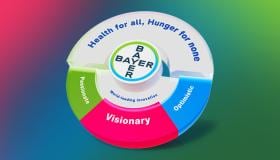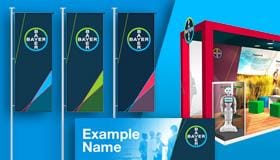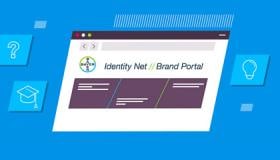Authoring Tools
E-learning programs are usually developed using a rapid e-learning authoring tool. To determine when to start developing a new WBT, it’s helpful to consider which tool will be used when developing the web-based training.
All of the following tools facilitate publishing to standard e-learning formats (e.g. AICC or SCORM). Each tool is, however, unique in the way it outputs to these standards. On the Publishing Settings page, we provide standard settings for specific authoring tools and LMS systems.
Please follow one of the following approaches:
-
Use standard, rapid e-learning authoring tools (avoid hard-coded HTML modules)
-
In particular, rapid and custom web-based training courses benefit from the use of standard tools.
-
-
Use existing local or global e-learning systems to host your e-learning programs
-
Use only supported, standard LMS interfaces offered by the internal systems
-
Below is a list of authoring tools that have already been used in Bayer environments. If you decide to use other tools, you should allocate more time for testing and implementation.
1. Adobe: Captivate
Captivate is very useful for creating fully interactive software simulations and also provides the functionality of other e-learning authoring tools. It allows publishing to HTML5 which enables the content to be viewed on many devices, including tablets and smartphones. A selection of quiz questions is also available and it is also possible to create customized, graded interactions using actions and variables. The latest version of Captivate also includes the eLearning Brothers template library.
2. Trivantis: Lectora Inspire
Lectora is an e-learning authoring tool that is enhanced by the inclusion of supporting tools:
-
Camtasia – a screen recording and video editing tool
-
Snagit – a screen capture and editing tool
-
Template Library from eLearning Brothers
It enables publishing to HTML 5 which enables the content to be viewed on many devices, including tablets and smartphones. The question creator provides a wide variety of standard question types that are flexible and easy to customize. For more advanced users, actions and variables can be used to create custom interactions and branched courses. Many image, video, animation, and audio formats are supported, which means that assets can be developed using other tools and easily imported.
3. Articulate: Presenter / Studio
Articulate Presenter focuses on rapid development. It allows easy conversion of PowerPoint slides into online modules. Many PowerPoint actions, transitions, and animations are now supported, and audio or video can also be added.
Presenter can be supplemented with Articulate Engage and Articulate Quizmaker in order to make a variety of interactions, surveys, and quiz questions possible. The ‘Articulate Studio’ suite already includes Presenter, Quizmaker, and Engage.
4. Articulate 360 (including Storyline 360)
Storyline 360 makes it easy to develop customized, interactive courses that work on every device – without any manual tweaking. Articulate 360 is specially designed to ensure that courses can be completed on any mobile device and have touchscreen gesture support.
Storyline 360 is powerful enough to satisfy experts, but easy enough for beginners to create virtually any interaction imaginable in just minutes. These can be constructed with slide layers, triggers and states. Learners can click, hover over or drag any object to trigger an action.
All types and formats of video can also be imported.
5. iSpring Suite 8
iSpring Suite allows the user to create courses in PowerPoint and enhance them with voice overs, video narrations, interactive quizzes and surveys, character and rich media interactions, and screen capture videos. It outputs an HTML5 format which enables the content to be viewed on many devices, including tablets and smartphones. This tool seems to be slick, easy and affordable.
Pros and Cons
For a quick overview we have listed some pros and cons of the most widely used authoring tools at Bayer in the following table:
|
Category |
Adobe Captivate |
Trivantis Lectora Inspire |
Articulate 360 (incl. Storyline 360) |
|
License costs (as of 2018) |
€ 429 (per user p.a.) €1,308 full license |
$ 2,595 full license |
$ 999 (per user p.a.) Personal Plan $1,299 p.a.) |
|
Tested LMS |
Success factors |
Success factors |
Success factors |
|
Quizzes |
Yes |
Yes |
Yes |
|
Bookmarking |
Yes |
Yes |
Yes |
|
Interactivity (Exams, quizzes, simulations, games, practice) |
Yes |
Yes |
Yes |
|
Export/Re-import of Translated Texts |
Yes |
No |
Yes |
|
Script/Outline of development |
Yes (there is a possibility of exporting the training material as a handout) |
No |
No |
|
Mobile ready |
Latest version |
Latest version |
Latest version |





